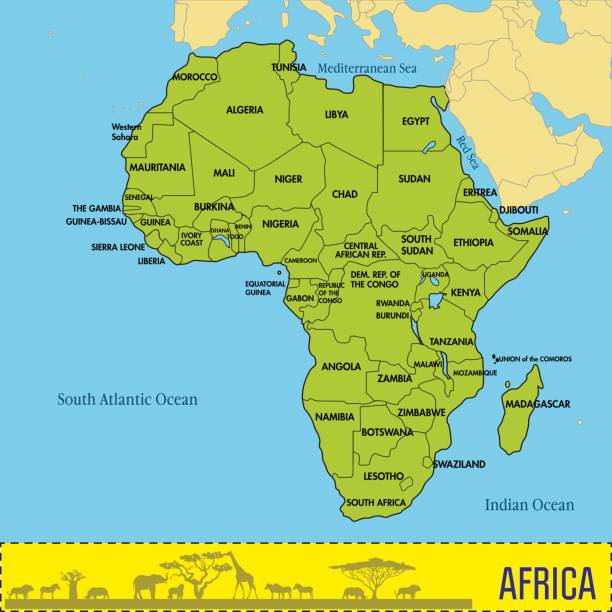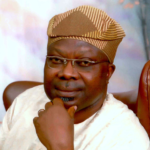Africa is a continent that is blessed with a lot of resources. Natural resources, raw materials, precious stones and flourishing seas make up the rife wealth in Africa.
With all the resources of 54 African countries and population of over 1 billion, it is expected that the continent should have great economy, blazing the trail for others to follow.
Join our WhatsApp ChannelWith all the predictions of lofty economy and wealthy nations, it is largely plagued with poverty induced by unemployment, coupled with incessant wars, corruption and under development generally. To mention but a few.
Half of the continent is battling various forms of security challenges. Armed militias trying so hard to bring the continent to her knees. Apart from that, the COVID -19 pandemic crippled the economy of the world. Countries in Africa were not left out. According to a Reuters report in 2021, Nigeria entered her 2nd recession in 5 years due to the effects of the pandemic. “Inflation in Nigeria, which has been in double digits since 2016, worsened with the pandemic. Food prices rose by 1.01 percentage point from the previous month to 20.57 per cent in January,” the National Bureau of Statistics (NBS) revealed in its report.
Countries like Sudan and Zimbabwe, have the highest inflation rate in Africa as of the first quarter of 2022. It is roughly 245 per cent and 86 per cent respectively.
Over the past decade, however, Africa has shown some positive signs with regard to economic growth and development. According to Araioflight.com, Africa was the fastest growing continent in 2013. The continent has jointly set a target of eradicating extreme poverty by 2030. It remains off track thus far, with the rate projected to fall to only 24.7 per cent in 2030, far from the 3 per cent Sustainable Development Goals target.
Although, the continent still has a long way to go in attaining such excellence, its recent achievements cannot be underestimated. In fact, the gradual, yet steady growth of many countries in Africa is fast becoming the fulcrum of global recognition; hence, the term “Africa Rising” (The Economist Corporate Network, 2011). This term/narrative has since gained widespread use, owing to the fact that many African Countries did enjoy rapid and steady economic growth between 2001 and 2011. Rwanda, for instance, experienced some form of economic boom within this period; and recorded a great deal of success in that stead as against the years before. The country was able to foster the influx of investors into its market, and ultimately, increased the country’s dynamics of self-sufficiency. The sharp increase in foreign investment, coupled with the steady growth of national GDP and improved standard of living, in Rwanda over the past decade suggests that the ‘Africa Rising’ narrative is nothing short of reality.
The narrative, however, has come under heavy criticisms in recent years because of the political turmoil, social unrest, terrorism, civil wars, etc., ravaging most part of the continent; among these countries are Ethiopia and Congo, two of the six fastest-growing economies in Africa. As a matter of fact, the narrative reflects only but a small percentage of the continent. Rwanda, for instance, is said to be growing economically; while its closest neighbor, Burundi, is on the verge of chaos. But should the economics of the continent in the past decade be discredited because of the shortcomings in some sectors? Or should the achievements of certain countries be undermined because of the deficiencies of others?
Well, they say Rome wasn’t built in a day. So also will a better Africa not be achieved overnight. Africa is still far from attaining first-world economic standard, but it is on course to meet such standard, considering its recent economic reforms.
A lot of countries are diversifying their economies. Countries are shifting from less imports to more exports.
The signing of the African Continental Free Trade Area (AfCFTA), which aims to create one of the largest single market for goods and services. Is looking like a possibility, with a lot of African countries agreeing to it. If it achieves its full potential, the continent will grow economically living no country out.
In as much as wars have spread across most parts of the continent, it does not necessarily spell doom for the continent. with consistent growth and improvement, it is estimated that the African economy will reach a GDP of $29 trillion by the year 2050, playing a major role in the global economy. Such feat is projected to enable countries on the continent reach “middle income” status, with a GDP per capita of at least $1,000 within the next decade.
Africa can, thus, be said to be rising or growing, owing to her economic achievement in the past decade. As a millennial with so much economic potentials as regards human and material resources, Africa is bound to succeed China and other “Asian Tigers” economic wise. If these resources are tapped into and judiciously harnessed, the rapid growth of Africa will only be a matter of when and not a matter of if.















Follow Us